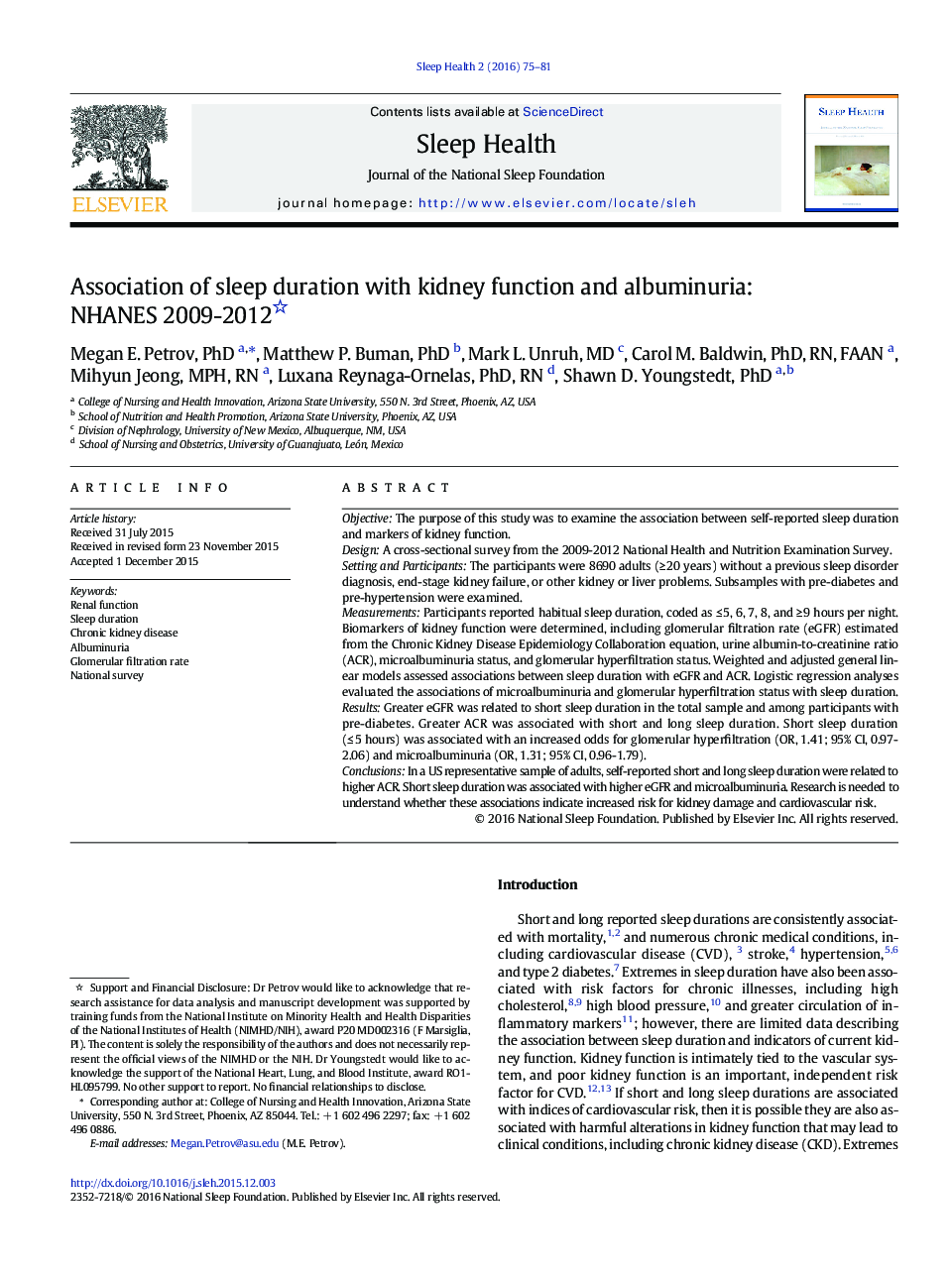| Article ID | Journal | Published Year | Pages | File Type |
|---|---|---|---|---|
| 916312 | Sleep Health | 2016 | 7 Pages |
ObjectiveThe purpose of this study was to examine the association between self-reported sleep duration and markers of kidney function.DesignA cross-sectional survey from the 2009-2012 National Health and Nutrition Examination Survey.Setting and ParticipantsThe participants were 8690 adults (≥ 20 years) without a previous sleep disorder diagnosis, end-stage kidney failure, or other kidney or liver problems. Subsamples with pre-diabetes and pre-hypertension were examined.MeasurementsParticipants reported habitual sleep duration, coded as ≤ 5, 6, 7, 8, and ≥ 9 hours per night. Biomarkers of kidney function were determined, including glomerular filtration rate (eGFR) estimated from the Chronic Kidney Disease Epidemiology Collaboration equation, urine albumin-to-creatinine ratio (ACR), microalbuminuria status, and glomerular hyperfiltration status. Weighted and adjusted general linear models assessed associations between sleep duration with eGFR and ACR. Logistic regression analyses evaluated the associations of microalbuminuria and glomerular hyperfiltration status with sleep duration.ResultsGreater eGFR was related to short sleep duration in the total sample and among participants with pre-diabetes. Greater ACR was associated with short and long sleep duration. Short sleep duration (≤ 5 hours) was associated with an increased odds for glomerular hyperfiltration (OR, 1.41; 95% CI, 0.97-2.06) and microalbuminuria (OR, 1.31; 95% CI, 0.96-1.79).ConclusionsIn a US representative sample of adults, self-reported short and long sleep duration were related to higher ACR. Short sleep duration was associated with higher eGFR and microalbuminuria. Research is needed to understand whether these associations indicate increased risk for kidney damage and cardiovascular risk.
